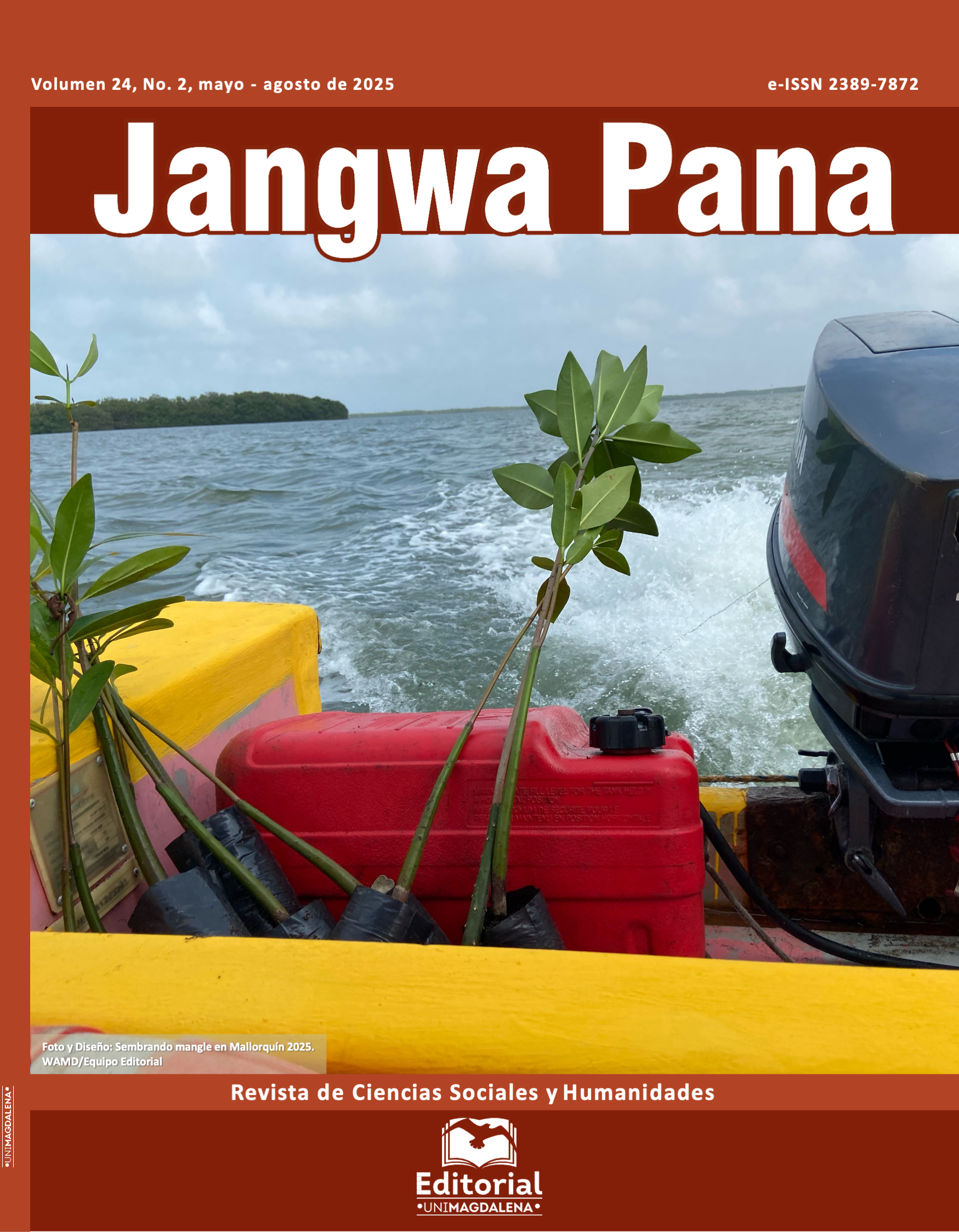Al encuentro con la etnografía: reflexiones autoetnográficas sobre la entrada a campo y sus posibilidades
Contenido principal del artículo
Resumen
Descargas
Detalles del artículo
Citas
Aceves, J. E. (2017). La historia oral y su praxis actual: Recursos metodológicos, estrategia analítica y toma de decisiones. In G. D. Arellano, & J. E. Lozano (Eds.), Entrevistar ¿para qué? Múltiples escuchas desde diversos cuadrantes (pp. 64-90). Instituto de Investigaciones Dr. José María Luis Mora.
Alegre-Agís, E., & Fernández-Garrido, S. (2019). Introducción. Cuando la voz tiembla y la disculpa incorporada emerge: etnografías como enfoque metodológico. In E. Alegre-Agís, & S. Fernández-Garrido (Eds.), Autoetnografías, cuerpo y emociones (I). Perspectivas metodológicas en la investigación en salud (pp. 17-32). Publicacions URV. Retrieved from https://llibres.urv.cat/index.php/purv/catalog/book/407
Álvarez, C., & Amador, J. C. (2016). Historias de familia. El marco ampliado de las historias de vida. Folios(46), 29-39. Obtenido de https://revistas.upn.edu.co/index.php/RF/article/view/6297
Blanco, M. (2012). Autoetnografía: una forma narrativa de generación de conocimientos. Andamios, 9(19), 49-74. doi:https://doi.org/10.29092/uacm.v9i19.390
De Garay, G. (2013). La entrevista de historia de vida: construcción y lecturas. In G. D. Garay (Ed.), Cuéntame tu vida. Historia oral: historias de vida (pp. 16-28). Instituto de Investigaciones Dr. José María Luis Mora.
Denzin, N. K. (2017). Autoetnografía Interpretativa. Investigación Cualitativa, 2(1), 81-90. Obtenido de https://www.academia.edu/33544214/Autoetnograf%C3%ADa_Interpretativa
Ellis, C., Adams, T., & Bochner, A. (2015). Autoetnografía: un panorama. Astrolabio(14), 249-273. doi:https://doi.org/10.55441/1668.7515.n14.11626
Guber, R. (2019). La etnografía: Método, campo y reflexividad. Siglo XXI Editores.
Hiernaux, D., & González, C. I. (2014). Turismo y gentrificación: pistas teóricas sobre una articulación. Revista de Geografía Norte Grande(58), 55-70. doi:https://doi.org/10.4067/S0718-34022014000200004
Instituto Nacional de Estadística y Geografía. (2020). Censo de Población y Vivienda 2020. Obtenido de https://www.inegi.org.mx/app/scitel/Default?ev=9
Pink, S., Horst, H., Postill, J., Hjorth, L., Lewis, T., & Tacchi, J. (2019). Etnografía digital. Ediciones Morata. Retrieved from https://institutorambell.blogspot.com/2023/02/etnografia-digital-principios-y-practica.html
Restrepo, E. (2018). Etnografía: alcances, técnicas y éticas. Universidad Nacional Mayor de San Marcos. Obtenido de https://n2t.net/ark:/13683/ph6y/YKK
Safa, P., & Aceves, J. E. (2009). Relatos de familias en situación de crisis: memorias de malestar y construcción de sentido. Centro de Investigaciones y Estudios Superiores en Antropología Social.
Torrado, S. (1981). Estrategias familiares de vida en América latina: la familia como unidad de investigación censal. Notas de Población(8), 55-105. Obtenido de https://hdl.handle.net/11362/12641
Villarreal, M. (2002). Las nuevas mujeres del maíz: voces fragmentadas en el mercado global. In G. D. Peña, & L. Vázquez (Eds.), La antropología sociocultural en México del milenio: Búsquedas, encuentros y transiciones (pp. 419-454). Fondo de Cultura Económica.
Zepeda-Cazarez, N. (2022). Manos de maíz y palma: familias campesinas y mujeres artesanas en la ruralidad de San Cristóbal Zapotitlán, Jocotepec. CIESAS Repositorio institucional. Obtenido de https://ciesas.repositorioinstitucional.mx/jspui/bitstream/1015/1521/1/TE%20Z.C.%202022%20Natalia%20Zepeda%20Cazarez.pdf

